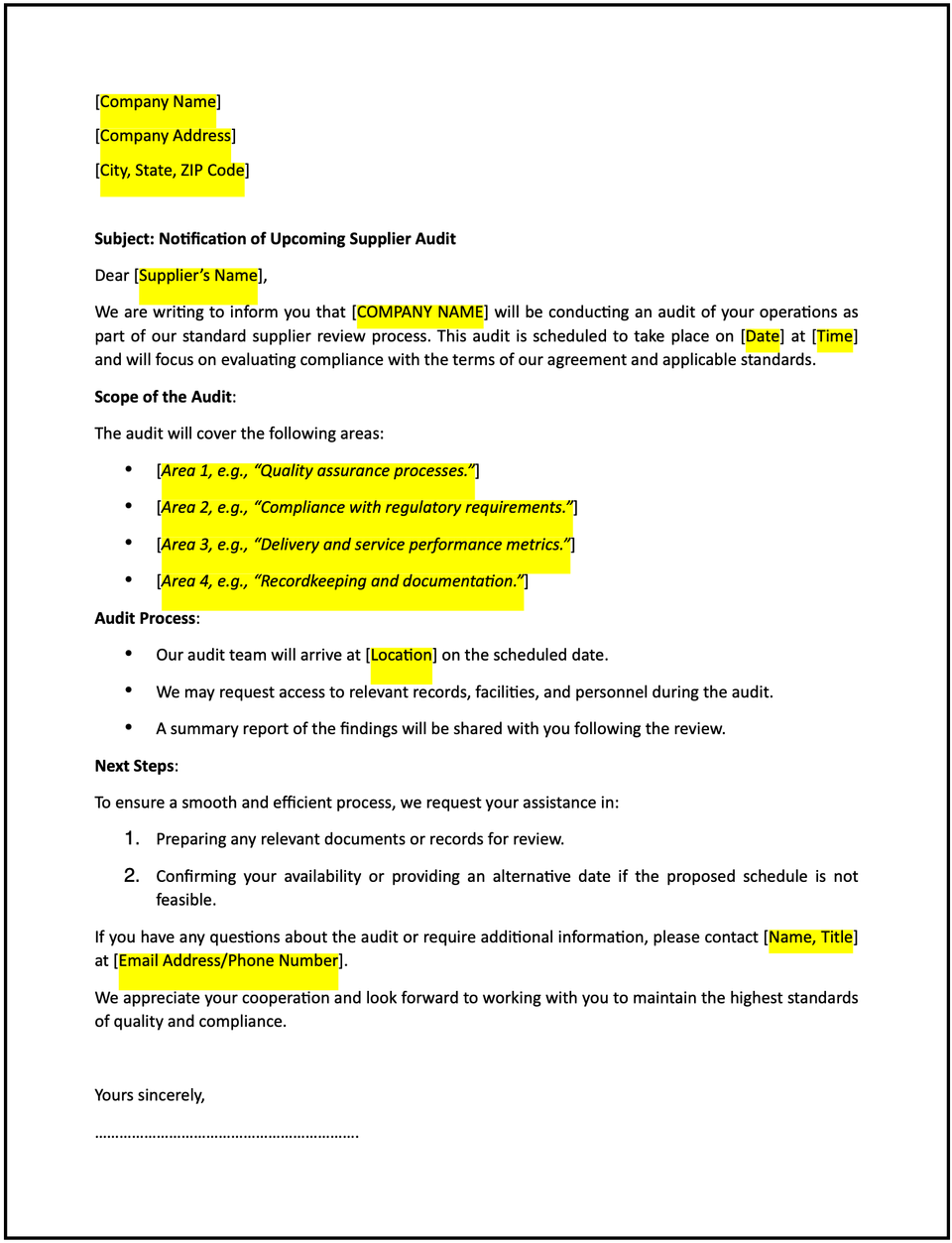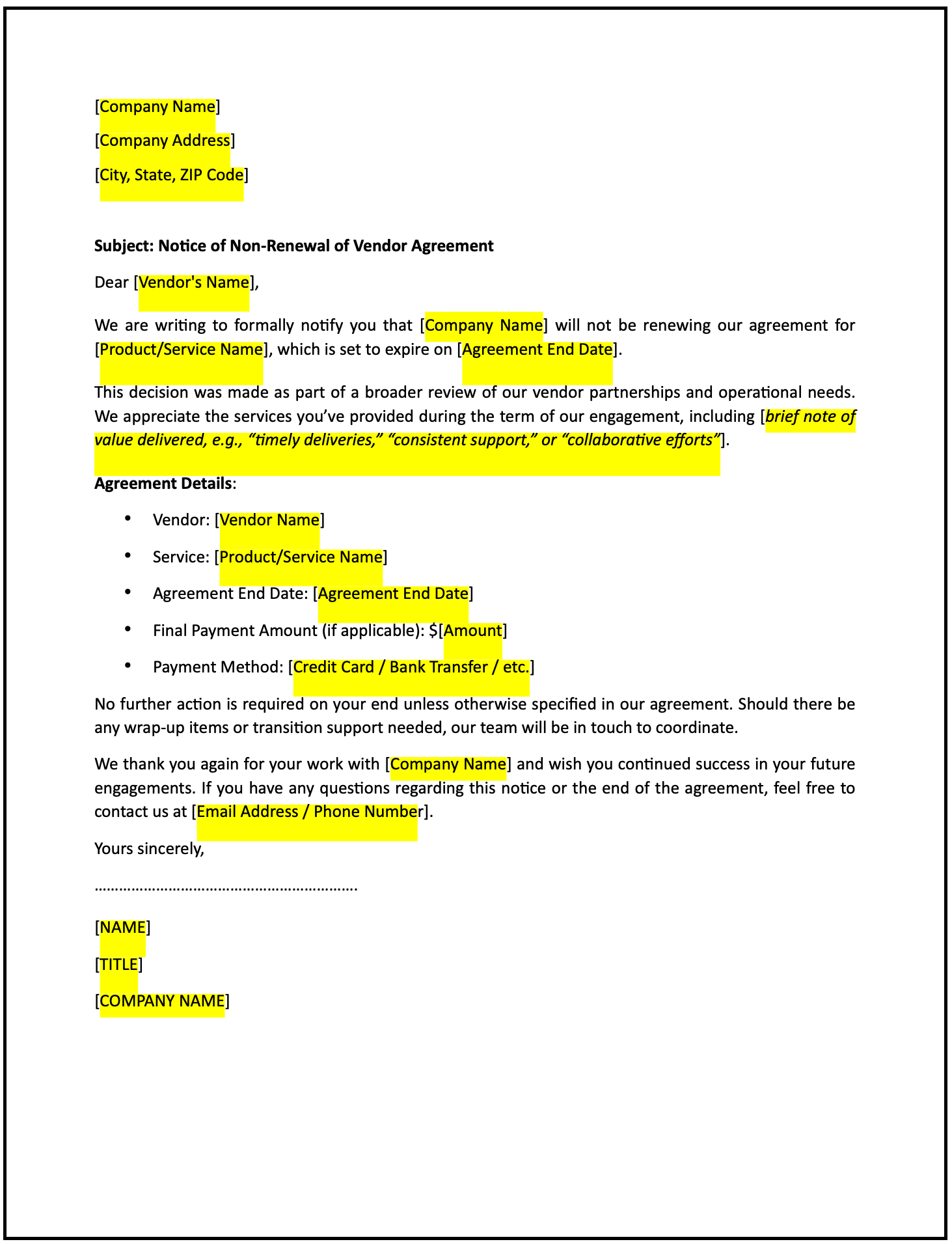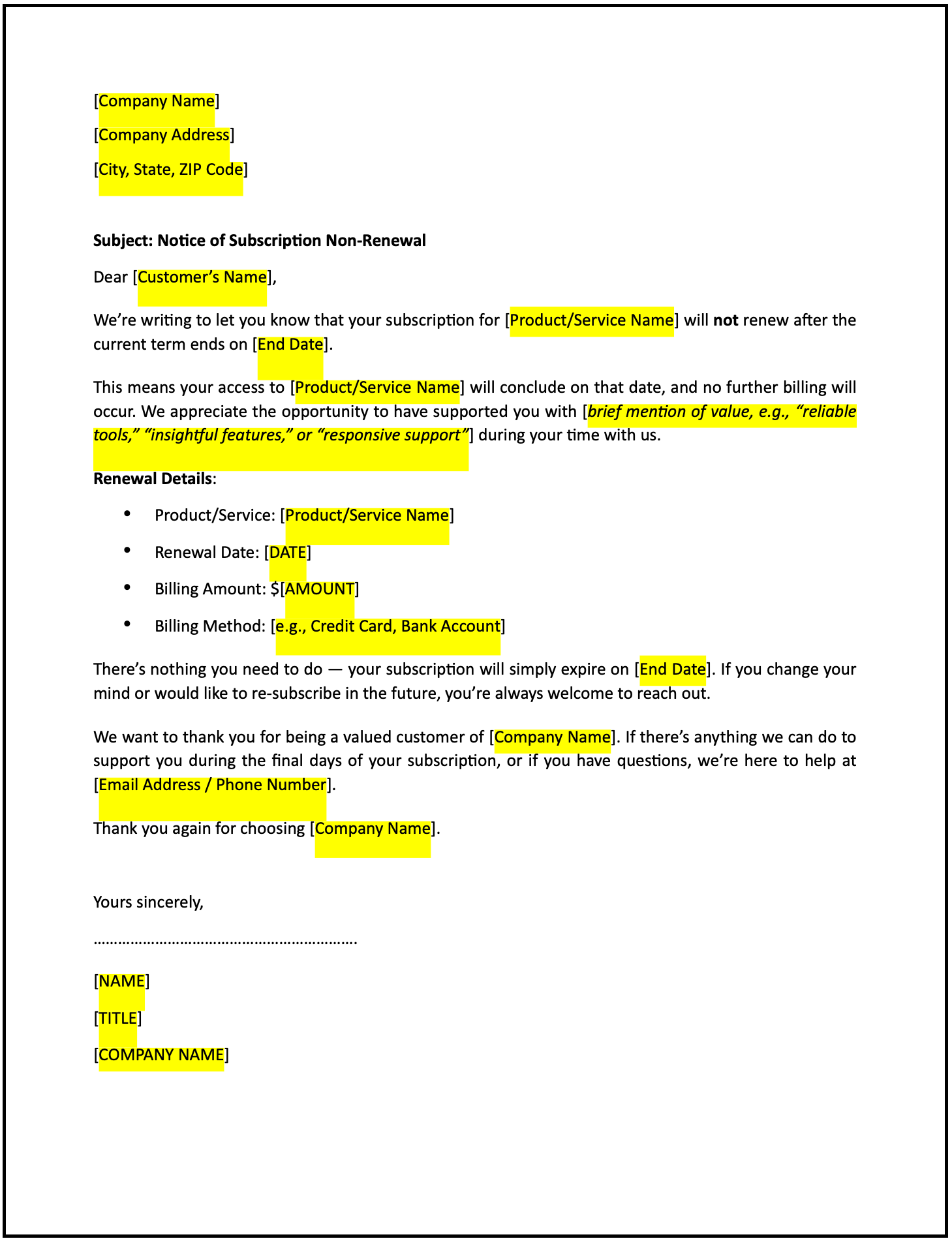Notification letter of upcoming supplier audit: Free template

Notification letter of upcoming supplier audit
A notification letter of an upcoming supplier audit is a formal communication used to inform a supplier about an upcoming evaluation of their processes, products, or services. This letter outlines the purpose of the audit, its scope, and the steps required to prepare, ensuring transparency and collaboration.
How to use this notification letter of upcoming supplier audit
- Open with an introduction: Address the supplier respectfully and reference the agreement or context for the audit.
- State the purpose: Clearly communicate that an audit will be conducted and outline its purpose, such as ensuring compliance or improving quality.
- Provide audit details: Specify the date, time, location, and scope of the audit, including any standards or areas of focus.
- Highlight benefits: Emphasize how the audit contributes to strengthening the partnership and ensuring quality standards are met.
- Include preparation requirements: Outline any documentation, personnel, or access needed for the audit process.
- Maintain a professional tone: Ensure the letter is clear, respectful, and focused on fostering collaboration.
- Provide contact information: Include details for the supplier to reach out with questions or to discuss the audit further.
Benefits of using a notification letter of upcoming supplier audit
This letter ensures a structured and professional way to communicate audit plans while fostering collaboration and accountability. Here’s how it helps:
- Promotes transparency: Clearly outlining the audit details prevents misunderstandings and builds trust.
- Reflects professionalism: A well-crafted letter demonstrates respect and attention to detail.
- Encourages alignment: Providing preparation requirements ensures the supplier is ready for the audit.
- Builds trust: Open communication fosters a positive and collaborative relationship.
- Supports quality assurance: Conducting audits strengthens compliance and operational standards.
Tips for writing an effective notification letter of upcoming supplier audit
- Be specific: Clearly describe the audit’s purpose, scope, and logistical details.
- Use professional language: Maintain a respectful and constructive tone to foster collaboration.
- Provide context: Briefly explain why the audit is necessary and its benefits for both parties.
- Highlight mutual benefits: Emphasize how the audit helps ensure quality and compliance.
- Include actionable steps: Share instructions for preparing for the audit, such as providing access or documentation.
- Keep it concise: Focus on the essential points while ensuring the tone is professional and engaging.
Frequently asked questions (FAQs)
Q: What details should I include in this letter?
A: Include the date, time, location, purpose, scope, and any preparation requirements for the audit.
Q: Should I personalize the letter?
A: Yes, addressing the supplier by name and referencing specific agreements or contexts demonstrates attentiveness and professionalism.
Q: Who typically sends this letter?
A: Procurement teams, quality assurance departments, or business owners typically send this letter.
Q: How formal should this letter be?
A: The tone should be professional, respectful, and focused on fostering collaboration.
Q: When should this letter be sent?
A: Send the letter well in advance of the audit date to allow sufficient time for preparation.
Q: Can this letter include a checklist for preparation?
A: Yes, attaching a checklist or specific requirements ensures the supplier is well-prepared.
Q: Is acknowledgment from the recipient required?
A: While not mandatory, requesting acknowledgment ensures the supplier understands and is ready for the audit.
This article contains general legal information and does not contain legal advice. Cobrief is not a law firm or a substitute for an attorney or law firm. The law is complex and changes often. For legal advice, please ask a lawyer.


